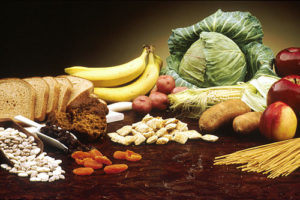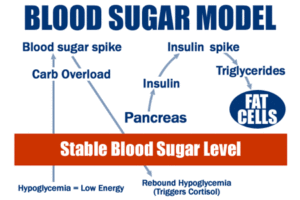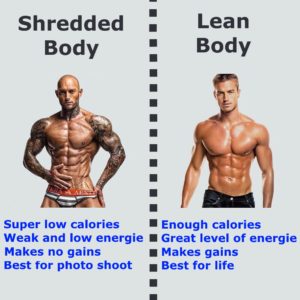What’s up ? This is THE stephane ANDRE !!! I watched a Jamcore DZ’s video and I learned some good stuff.
If you want to learn how to manage your protein, click here and for amino acids, click here.
Carbohydrates are the main source of energy for the body. It’s true that we can have energy with proteins and lipids but they provide less quantity of energy.
To put it simply, when you eat carbohyrates, they turn into glucose and then into glycogen. To better understand, I’ll take the example of a gasoline tank. Imagine that the tank is a muscle and that the gasoline is glycogen. Gasoline in the tank helps move the car and glycogen in the muscle helps move your body.
This glycogen is shared in many places in your body : 80% in your muscles, 14% in your liver and 6% in your blood.
Carbohydrate type
Most people know 2 types of carbohydrates, slow carbohydrates and simple carbohydrates. There is a 3rd type, it’s fibrous carbohydrate and unfortunately many people neglect them.
Slow carbohydrates :
-
Whole wheat bread / white bread (refined carbohydrate)
-
Whole wheat rice / white rice (refined carbohydrate)
-
Oatmeal
-
Cereals (muelsi is excellent because there are often lipids and carbohydrates that are added like nuts, raisins, etc. ).
-
Sweet potato / potato
-
Whole wheat pasta / white pasta (refined carbohydrate)
-
Kinoa
-
Couscous
Simple carbohydrates :
-
Fruit (fructose)
-
Honey
-
Dextrose
-
Maltodextrin
-
Lactose (it’s sugar in the milk)
-
Cluster dextrin (it’s perfect during your training session because it has a low glycemic index).
Fibrous carbohydrates (vitamin, fiber et minerals) :
-
Vegetables (aspargus, carrot, cauliflower, salad, etc)
Carbohydrate, insulin and insulin spike
There is a special relationship between carbohydrates and insulin. When you eat carbohydrates, they turn into glucose, which is a type of sugar, and then glucose is turned into glycogen. Glucose is managed by insulin. Insulin is a hormone created by the pancreas. The insulin’s role is to manage the sugar’s level in the blood. This avoids having too much sugar in the blood (hyperglycemia) or not enough sugar in the blood (hypoglycemia).
The problem is that the majority of people eat any type of carbohydrate anyway and they may quickly get a lot of fat. It’s important to understand that each carbohydrate has a different gylcemic index and this glycemic index will cause different insulin spikes.
Glycemic index
A glycemic index indicates how quickly carbohydrates become glucose in the blood. It’s for this reason that it’s recommended to eat carbohydrate with a low glycemic index rather than those with a high glycemic index.
Carbohydrates with low glycemic index :
-
Sweet potato
-
Oatmeal
-
Kinoa
-
Sugar free fruit juice
-
Whole wheat rice
-
Whole wheat bread
-
Whole wheat pasta
-
Fruits (apple, orange, cherry, pear, apricot)
-
Cluster dextrin (for your training session)
Carbohydrate with high glycemic index :
-
Potato
-
Couscous
-
Table sugar
-
White rice
-
White bread
-
White pasta
-
Cereal (Kellog, Nestle, etc.)
-
Dextrose
-
Sweet drink (soda)
-
Fruit (melon, watermelon)
Here is an exemple of low glycemic index carbohydrates to eat. For high glycemic carbohydrates, it’s recommended to eat them in moderation because if you eat them in large quantities, after several years, you have the risk to becoming diabetic or having other health problems.
Consumption
Always take into consideration your bodyweight and your training’s intensity. There 2 bad situations :
-
Have a not very intense training and eat too much carbohydrates, which results in having too much fat in the body.
-
Have intense training and eat a little carbohydrate, which results in being weak.
Take for example :
-
A man who weighs 85kg and is a beginner. In this case, it’s recommended to start with 3.5gr per kilo of bodyweight so 3.5 x 85 = 297.5gr of carbohydrates to eat a day.
-
A man who weighs 85kg and who is advanced or pro. In this case, it’s 5gr per kilo of bodyweight so 5 x 85 = 425gr of carbohydrates to eat a day. As an advanced person, the training sessions are really intense, that’s why you need this amount of energy.
-
A man who weighs 85kg and who wants to be shredded. Let things be clear, it’s being shredded and not losing weight. In this case is between 1.2 ans 2.5gr per kilo of bodyweight so it’s between 102 and 212.5gr of carbohydrates to eat per day.
The carbohydrates amount to eat is to be divided into 4-5 meals a day for ease of digestion. Each meal is balanced in carbohydrates, proteins and lipids.
To be shredded
Let things be clear, be shredded isn’t a weight loss. In this situation, leptin must be taken into consideration. Leptin is a hormone that regulates your appetite. When you start to lower your glucides, leptin will aslo decrease and you’ll be hungry. These feelings of hunger are created because of ghrelin. Ghrelin is a hormone called « hormone hunger » because it stimulates the appetite. Ghrelin also affects your insulin and testosterone.
This means that people who too quicly decrease their carbohydrates will fail because the lack of energy will be too brutal. The feeing of hunger will be too intense because the body has not had time to get used to the new diet. This is where nutrition is out of control.
Never reduce carbohydrate to 0. The people who do that, make a diet ketogenic and you have to master this type of diet. The professional bodybuilder is doing this diet for 4 weeks, but they can do that because of chemical aid (steroids) and they have a dietician. The problem is that those who aren’t professional athletes and who are on a ketogenic diet do that because someone told them it was good. That’s why in the gyms there are people who lose consciousness because they don’t have enough energy. You need 50 to 130 grams of carbohydrates, just for your brain, it’s not a simple diet to lose weight.
Subscribe to my newsletter and share this article if you think it can help someone you know. Thank you.
-Steph
P.S. If you’re in Miami and you like Caribbean food, go to my cousin’s bistro to eat Haitian food, click here.


